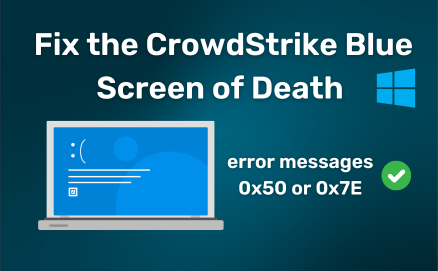In the process of web development, A proper hosting serves the primary strength to it. while without efficient knowledge, people generally spends either more or less than what it needed and chooses inappropriate plans and types. Before exploring hosting plans you should know everything about web hosting which will help you determine the best for you.

What is Web Hosting? Know Everything About Web Hosting
In the process of Web Development, we need to have 2 primary services before hand i.e. Domain Name & Web Hosting, As domain name act as the address to your content just like address to your house, which is unique, and hosting act as the plot of land where you live or you can think of an empty house, where you can shift your furniture, sofa or bed and the T.V., a hosting is quite similar to that.
Let’s dive a bit to know everything about web hosting, It is the storage that sits behind everything you see online. every single website you see are being hosted on such storage, the data present there are being collected and fed to you online. these storage runs on large server or small device servers which is connected to high speed internet and all time running power supply.

To host a website you need hosting services from any hosting providers and you have to to choose what type of hosting you want and they’ll charge you according to that. But you can also host website by yourself with some freely available software or using online drive services
Self Hosting vs Hosting Service Providers
Self Hosting
You can use your own device or use an old device of yours as hosting server to host website by simply installing some free software which is available online for both Android and Windows. The software turns your device into live server where you can upload your website. But u should know everything about web hosting in order to host on your own device that requires pre-requisite knowledge.
Pros of Using Self Hosting
- Free for lifetime.
- Faster and efficient (depends upon your device).
- You have full control over the system.
- You don’t need to share data with providers.
Cons of Using Self Hosting
- Power Consumption (device have to work all time without being standby).
- Data Charges ( as the device will run all time).
- Device will heat up eventually.
- Website will be depend on the device’s performance.
- Security will be compromised.
- Need to monitor time to time.
Hosting from Service Providers
There are bunch of hosting provider out there which offers hosting deals, they provide variety of types and plans to consider and addon amenities also. A good hosting improve uptime and overall website loading time. hosting providers avail CMS installation tools that is used to install and set-up CMS (Content Management Systems) like WordPress, Joomla etc. within minutes.
Pros of Using Hosting Service
- Easy Setup.
- Speed is and performance is depend on plan and traffic.
- Dedicated C-panel
- One-click CMS Installation
- Better Security
- Addons like Email, SSL, Spam Protection etc.
- No need to monitor all the time
Cons of Using Hosting Service
- You need to pay monthly or yearly.
- You need to share data to signup
- Speed and features depends upon the plan you chooses.
Types of Web Hosting
The types of hosting services are generally depends upon which machine/server it’s running on, the operating system, total amount of storage provided, total bandwidth availed, RAM & Processor etc.
Here’s the types of hosting that a provider generally offers:
Shared Hosting
Shared hosting is an entry-level hosting option where multiple websites are hosted on a single server. It is a cost-effective solution, as the server resources are shared among the websites. While shared hosting is affordable and easy to set up, it may lead to slower performance during high traffic periods. It is suitable for small websites with moderate traffic like Blog, Startups, Portfolio etc.
Virtual Private Server (VPS) Hosting
VPS hosting provides a dedicated portion of a server with its own resources and operating system. It offers better performance and flexibility compared to shared hosting. With VPS hosting, you have more control over server configurations and can install custom software. It is ideal for growing websites that require more resources, reliability, and security.
Dedicated Server Hosting
Dedicated server hosting provides an entire server exclusively for a single website. This option offers maximum control, customization, and performance. Dedicated hosting is recommended for large businesses, high-traffic websites, or applications that require extensive resources. It is more expensive than shared or VPS hosting due to the dedicated nature of the server.
Cloud Hosting
Cloud hosting utilizes multiple interconnected servers to distribute the load and ensure high availability. It offers scalability, as resources can be easily scaled up or down based on demand. Cloud hosting is suitable for websites with fluctuating traffic or seasonal peaks. It provides excellent reliability and redundancy, minimizing the risk of downtime.
Managed WordPress Hosting
Specifically designed for WordPress websites, managed WordPress hosting optimizes performance and security. It includes automatic updates, backups, and specialized support for WordPress-related issues. Managed WordPress hosting is an excellent choice for individuals or businesses that want to focus on content creation without worrying about technical aspects.
Factors to Consider When Choosing a Hosting Plan

- Performance and Reliability: Look for a hosting provider with reliable server infrastructure and high uptime guarantees. Check if they have solid-state drives (SSDs) for faster data retrieval and consider the server location in relation to your target audience.
- Scalability: If your website is expected to grow, choose a hosting plan that allows easy scalability, whether it’s upgrading to a higher tier or shifting to a different type of hosting.
- Support: Consider the level of customer support offered by the hosting provider. 24/7 technical support through multiple channels can be invaluable when facing issues or needing assistance.
- Security: Ensure that the hosting provider implements robust security measures, including regular backups, firewalls, and malware scanning. SSL certificates for secure data transmission are also essential.
- Pricing and Value: Compare the pricing of different hosting plans and evaluate the features and resources provided. Consider the long-term value rather than solely focusing on the lowest price.
Closure
Choosing the right web hosting plan is a critical decision that can significantly impact your online presence. I hope this summaries everything about web hosting to you. By understanding the different hosting types and considering factors such as performance, scalability, support, security, and pricing, you can make an informed choice. Assess your current and future requirements to determine which hosting plan aligns best with your needs. Remember, investing in reliable and suitable hosting is an investment in the success of your website or online business.








